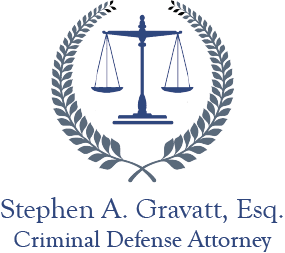DISORDERLY CONDUCT—N.J.S.A. 2C:33-2
Disorderly NJ
If you’ve been charged with violation of 2C:33-2(a), you have exposure for possible jail from 0 to 30 days, criminal record and monetary fine of up to $500.00. I have handled hundreds and hundreds of these cases in my 26 plus years practicing criminal law–saving clients from conviction and from having a criminal record–which would have precluded them from obtaining employment as a school teacher, governmentalofficial, a licensee of certain professional boards and so forth. Please contact me at (732)-337-7922 for an evaluation of your circumstances and vigorous and competent representation. Whatever the charge, I can make less bad for you.
ILLUSTRATIVE EXAMPLE OF WHAT CONDUCT CONSTITUTES THE OFFENSE: You and a few friends decide to meet up at your favorite bar in Belmar New Jersey for an evening of drinking beer and stimulating conversation. After each of you has consumed mass quantities of libation, somebody you don’t know says something offensive to somebody else you do know. Words are exchanged. Somebody shoves you—you push back. Next thing you know an altercation breaks out and the police are called to keep the peace. When the police arrive, they tell you not to speak. You instinctively try to explain that you had no part in any illegal conduct. Suddenly you are being arrested and charged with disorderly conduct. Did you just commit a criminal act?
THE ACTUAL LAW
a. “Improper behavior. A person is guilty of a petty disorderly offense, if with purpose to cause public inconvenience, annoyance or alarm, or recklessly creating a risk thereof, he (1) Engages in fighting or threatening, or in violent or tumultuous behavior; or (2) Creates a hazardous or physically dangerous condition by any act which serves no legitimate purpose to the actor.
b. Offensive language. A person is guilty of a petty disorderly persons offense if, in a public place, and with purpose to offend the sensibility of a hearer or in reckless disregard of the probability of doing so, he addresses unreasonably loud and offensively coarse or abusive language, given the circumstances of the person present and the setting of the utterance, to any person present.
Public means affecting or likely to affect persons in a place to which the public or a substantial group has access; among the places included are highways, transport facilities, schools, prisons, apartment houses, places of business or amusement, or any neighborhood.”
The answer to the fact pattern is YES.
Under the first fact pattern, you have arguably committed a section (a.1) disorderly conduct by means of “…fighting, threatening or engaging in violent or tumultuous behavior” …”with purpose to cause public …annoyance or alarm, or recklessly creating a risk thereof.” The statute is intended to afford police a tool to control and thwart violent or alarming conduct perpetrated by angry, emotionally volatile, individuals committing violent acts against others in public places “…that may disturb and disrupt peaceful society.” State v. Paserchia, 356 N.J. Super 461 (App. Div. 2003) Note, however, you must have purposely intended to engage in conduct designed to create public inconvenience, annoyance or alarm. State v. Stampone, 341 N.J. Super 247 (App. Div. 2001).
When you disobey a law prohibiting dangerous conduct, like going on the beach during a hurricane, you violate to law because you are acting by means of “creates a hazardous or physically dangerous condition by any act which serves no legitimate purpose of the actor.” State v. Oliver, 320 N.J. Super 405 (App. Div. 2001).
I have not provided a fact pattern for section (b) because State in Interest of H.D., 206 N.J. Super 58 (App. Div. 1985) held this provision to be unconstitutional.
Your exposure if convicted is imposition of monetary fine of up to five hundred dollars ($500.00), plus possible jail time of a minimum of zero (0) days up to a maximum of thirty (30) days, plus a criminal record. The imposition of a criminal record can preclude you from obtaining employment as a New Jersey school teacher, a police officer, delay your entry into the military, preclude you from holding public office and/or cause employers in the private sector to refuse to hire you. The best practice is to retain a skilled and experienced attorney to handle your case and to obtain a downgrade or possible dismissal of the charges. Do not kid yourself that a conviction for a petty d.p. cannot have future catastrophic consequences on your career aspirations.

